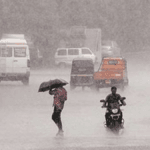Main Points In Hindi (मुख्य बातें – हिंदी में)
यहां दिए गए पाठ के मुख्य बिंदु निम्नलिखित हैं:
-
आयात में वृद्धि: इस वर्ष फिलीपींस लगभग 5 मिलियन मीट्रिक टन चावल का आयात करेगा, जो एक रिकॉर्ड है, और अन्य वस्तुओं जैसे मांस, सब्जियों, चीनी और मछली के आयात में भी वृद्धि होने की संभावना है।
-
कृषि विभाग की भूमिका: कृषि विभाग (डीए) को "कृषि आयात विभाग" में बदलने का आरोप लगाया गया है, क्योंकि किसान और मछुआरे इस बात से चिंतित हैं कि कृषि उत्पादों का आयात बढ़ता जा रहा है, जबकि स्थानीय उत्पादन में कमी आ रही है।
-
हितधारकों की संकीर्ण सोच: कई कृषि हितधारक केवल अपने व्यक्तिगत या क्षेत्रीय लाभ की खातिर काम कर रहे हैं, जबकि देश की समग्र कृषि विकास और उपभोक्ताओं के कल्याण पर विचार नहीं कर रहे हैं।
-
बजटीय आवंटन की समस्या: चावल उत्पादकता कार्यक्रमों के लिए कृषि विभाग का 60% बजट निर्धारित किया गया है, लेकिन उत्पादकता में बड़े बदलाव नहीं आए, जिसके कारण आयात पर निर्भरता बढ़ी है।
- पशुधन उद्योग की चिंताएं: भारत से मांस आयात की अनुमति देने के मुद्दे पर चिंता जताई गई है, खासकर उन क्षेत्रों से जो खुरपका-मुँहपका रोग से प्रभावित हैं। यह फिलीपींस के पशुधन उद्योग को और कमजोर कर सकता है।
इन बिंदुओं के माध्यम से यह स्पष्ट होता है कि कृषि और पशुधन उद्योग में चुनौतियां बढ़ रही हैं और वहां हितों के टकराव और राजनीतिक तत्व शामिल हैं, जिन्हें सही दिशा में संबोधित करने की आवश्यकता है।


Main Points In English(मुख्य बातें – अंग्रेज़ी में)
Here are the main points from the provided text:
-
Record High Imports: The Philippines is projected to import around 5 million metric tons of rice this year, a record figure, alongside increasing imports of meat, vegetables, sugar, and fish. This trend raises concerns about the country’s agricultural self-sufficiency.
-
Criticism of Agricultural Policies: There is a critique that the Department of Agriculture (DA) has transformed into an "agricultural import department," driven by various interest groups, while neglecting the support that farmers and fishermen truly need. This marks a significant shift since the tenure of former Agriculture Secretary William Dar.
-
Impact of Natural Disasters: The text discusses the challenges facing the agricultural sector due to natural and man-made disasters, including storms, outbreaks of diseases like African Swine Fever, and geopolitical conflicts. Despite these challenges, the DA has faced less scrutiny compared to past crises.
-
Narrow Interests of Stakeholders: Various stakeholders are seen to prioritize their own narrow interests over the broader agricultural and economic welfare of the Filipino population. This has led to a disproportionate allocation of resources, primarily favoring rice production while neglecting high-value crops and overall agricultural development.
- Need for Government Intervention: There is a call for the government to prioritize the interests of consumers and the broader economy, rather than yielding to pressure from well-organized lobbying groups. The need for balanced policies that support sustainable agricultural development and protect the livestock industry from diseases is emphasized.
Complete News In Hindi(पूरी खबर – हिंदी में)
मीडिया ने बताया है कि हम इस वर्ष लगभग 5 मिलियन मीट्रिक टन चावल का आयात करेंगे – एक रिकॉर्ड-उच्च आंकड़ा। इसने यह भी बताया कि हमारा मांस आयात आसमान छू जाएगा। यही बात अन्य वस्तुओं जैसे सब्जियों, चीनी और यहां तक कि मछली के लिए भी सच है।
लेकिन हमने किसानों और मछुआरों के समूहों से लेकर निजी व्यापार क्षेत्र तक तथाकथित कृषि हितधारकों को यह कहते हुए नहीं सुना है कि कृषि विभाग (डीए) ने खुद को “कृषि आयात विभाग” में बदल दिया है। वे ऐसा पूर्व कृषि सचिव विलियम डार के समय में करते थे, जब कृषि वस्तुओं का आयात कभी भी अभूतपूर्व स्तर तक नहीं पहुंच पाया था।
क्या हुआ? क्या वे अधिक प्रबुद्ध हो गये हैं? शायद निहित स्वार्थी समूहों के इस समूह को एहसास हुआ कि हम प्राकृतिक आपदाओं से प्रभावित हुए हैं जिसने हमारे कृषि उत्पादन पर प्रतिकूल प्रभाव डाला है।
हालाँकि, डार के समय में प्राकृतिक और मानव निर्मित आपदाएँ भी थीं, जैसे गंभीर तूफान, अफ्रीकी स्वाइन बुखार (एएसएफ) का प्रकोप और कोविड -19 महामारी, इसके बाद ताल ज्वालामुखी विस्फोट, रूस-यूक्रेन संघर्ष, और बर्ड फ्लू फैलने का खतरा मंडरा रहा है। यह व्यावहारिक रूप से एक आदर्श तूफान की स्थिति थी।
अब एजेंसी की बदनामी क्यों नहीं हो रही? यह कारण फिलीपीन कृषि की राजनीतिक अर्थव्यवस्था की प्रकृति को प्रकट करता है। प्रत्येक तथाकथित हितधारक सौ मिलियन फिलिपिनो उपभोक्ताओं की अर्थव्यवस्था और कल्याण पर समग्र प्रभाव की परवाह किए बिना केवल अपने स्वयं के संकीर्ण या क्षेत्रीय हित का प्रतिनिधित्व करता है और उन्हें आगे बढ़ाता है।
कोई भी कृषि वस्तु योजनाओं की समीक्षा करके इस संकीर्ण सोच का पता लगा सकता है, जिसके निर्माण में इन हितधारकों की भागीदारी शामिल थी। सरसरी तौर पर समीक्षक को यह पता चल जाएगा कि उन सभी ने मांग की थी कि सरकारी संसाधनों को बजटीय बाधाओं और इससे भी महत्वपूर्ण बात यह है कि अन्य वस्तुओं के विकास पर प्रभाव पर विचार किए बिना उनकी संबंधित वस्तुओं के लिए समर्पित किया जाए।
इसका प्रमुख उदाहरण चावल है। डीए के वार्षिक बजट का लगभग 60 प्रतिशत चावल उत्पादकता कार्यक्रमों के समर्थन में जाता है। दुर्भाग्य से, बड़े पैमाने पर संसाधन झोंके जाने के बावजूद, उत्पादकता लाभ न्यूनतम रहा है और इस प्रकार बड़े पैमाने पर आयात करना पड़ा। इसके बावजूद, चावल हितधारक इस क्षेत्र के लिए अधिक बजट और सब्सिडी पर जोर देते रहे हैं।
परिणामस्वरूप, उन वस्तुओं के लिए बहुत कम आवंटन किया जाता है जहां देश को तुलनात्मक लाभ होता है, जैसे उच्च मूल्य वाली फसलें और नारियल (हमारी भूमि के 3 मिलियन हेक्टेयर से अधिक पर लगाए गए)। नतीजतन, समग्र कृषि विकास अवरुद्ध हो गया है, और परिणाम एक पिछड़ा हुआ क्षेत्र है।
जाहिर है, हम कृषि के भाग्य को निहित स्वार्थों के भरोसे नहीं छोड़ सकते, और यहीं पर राज्य या सरकार की भूमिका बहुत महत्वपूर्ण है। सरकार को फिलिपिनो की सबसे बड़ी संख्या के लिए अधिकतम लाभ प्रदान करते हुए विभिन्न हितों को संतुलित करने में सक्षम होना चाहिए। राज्य चीनी लॉबी समूहों या चावल किसान समूहों की माँगों के आगे झुक नहीं सकता, पूर्व के जबरदस्त राजनीतिक-आर्थिक प्रभाव और बाद की लोकलुभावन अपील के बावजूद। ऐसा करने से फिलिपिनो उपभोक्ताओं पर इन वस्तुओं के उत्पादकों और व्यापारियों द्वारा बेचे जाने वाले खराब गुणवत्ता और महंगे उत्पादों का बोझ पड़ेगा।
राज्य को यह सुनिश्चित करने के लिए उपभोक्ताओं के हित को प्राथमिकता देनी चाहिए कि किसी भी निर्णय से हमारे अधिकांश लोगों को सबसे पहले लाभ होगा। यदि यह किसी सुधारवादी राज्य अभिनेता द्वारा किया जाता है, तो मीडिया और कांग्रेस में उनके सहयोगियों का उपयोग करके निहित स्वार्थी समूहों द्वारा निंदा अभियान की अपेक्षा करें।
विकल्प लेन-देन की राजनीति का सहारा लेना है जिसमें इन समूहों से समर्थन हासिल करने और खराब कृषि प्रदर्शन के बारे में किसी भी आलोचना को शांत करने के लिए सौदे किए जाते हैं। आयात आवंटन, खरीद अनुबंध प्रदान करना और सहायता या सब्सिडी का प्रावधान सामान्य पुरस्कार हैं।
हालांकि इससे निहित स्वार्थी समूहों की आलोचनाएं शांत हो सकती हैं, लेकिन कृषि प्रदर्शन में लगातार गिरावट के दुखद परिणाम को रोका नहीं जा सकता है। फिलीपीन कृषि के इतिहास से पता चलता है कि यदि हमें वास्तव में परिवर्तन लाना है, तो राज्य को इन निहित स्वार्थी समूहों के अत्यधिक प्रभाव का सामना करने में सक्षम होना चाहिए। पूर्व राष्ट्रपति फिदेल रामोस के शब्दों में, सरकार को “समान अवसर” सुनिश्चित करना चाहिए।
एक अन्य महत्वपूर्ण मुद्दे पर, भारतीय जल भैंस या काराबाओ मांस के अधिक आयात की अनुमति देने के लिए डीए में एक मजबूत पैरवी की जा रही है। फिलीपीन कॉर्न बीफ़, हॉट डॉग और अन्य मांस उत्पादों के प्रसंस्करण के लिए भारत से सालाना लगभग 32 से 48 मिलियन किलोग्राम का आयात करता है।
हालाँकि, समस्या यह है कि लॉबी समूह भारत, विशेष रूप से महाराष्ट्र और तेलंगाना के उन क्षेत्रों को शामिल करना चाहता है, जो खुरपका-मुँहपका रोग से प्रभावित माने जाते हैं। इन स्थानों से मांस उत्पादों के प्रवेश से हमारा पशुधन उद्योग, जो पहले से ही एएसएफ से जूझ रहा है, एक और बीमारी की चपेट में आ सकता है।
पशु उद्योग ब्यूरो में हमारे पशु चिकित्सा और पशु विशेषज्ञों के समय पर और प्रभावी हस्तक्षेप के कारण फिलीपींस को 2011 में पैर और मुंह की बीमारी से मुक्त घोषित किया गया था। इसी एजेंसी ने भारत के दो राज्यों से कैरबीफ़ के आयात को लेकर लाल झंडी दिखा दी है. यदि खुरपका-मुंहपका रोग देश में प्रवेश करता है, और एएसएफ अभी भी विभिन्न नगर पालिकाओं में व्याप्त है, तो हमारे पशुधन उद्योग के शीघ्र ठीक होने की संभावना कम है।
चुनाव बिल्कुल स्पष्ट है. क्या डीए को लेन-देन संबंधी लाभ के कारण किसी हित समूह के दबाव के आगे झुकना चाहिए या उद्योग के खिलाड़ियों और लाखों फिलिपिनो उपभोक्ताओं के विशाल बहुमत के हितों की रक्षा करनी चाहिए?
[email protected]
Complete News In English(पूरी खबर – अंग्रेज़ी में)


The media has reported that this year we will import nearly 5 million metric tons of rice, which is a record high. It also mentioned that our meat imports will skyrocket, and the same can be said for other goods like vegetables, sugar, and even fish.
However, we haven’t heard any so-called agricultural stakeholders—from farmers and fishermen to private businesses—saying that the Department of Agriculture (DA) has essentially turned into an “agricultural import department.” This was something they would have voiced back when former Agriculture Secretary William Dar was in charge, a time when imports of agricultural products had never reached such unprecedented levels.
What has changed? Have these groups become more enlightened? Perhaps those with vested interests have realized that we are affected by natural disasters that have negatively impacted our agricultural production.
Yet, during Dar’s time, there were also natural and man-made disasters, such as severe storms, an outbreak of African Swine Fever (ASF), and the COVID-19 pandemic. This was followed by the Taal volcano eruption, the Russia-Ukraine conflict, and threats from bird flu outbreaks. It truly was a perfect storm.
So why is the agency not facing any backlash now? This reveals the nature of the political economy of Philippine agriculture. Each so-called stakeholder focuses on their narrow or regional interests without caring about the overall impact on the economy and welfare of a hundred million Filipino consumers.
Anyone reviewing agricultural plans can uncover this narrow-minded thinking, particularly where these stakeholders were involved in their creation. A superficial review will reveal that they all demanded that government resources be dedicated to their specific products without considering budget constraints and the impact on the development of other goods.
A prime example is rice. Around 60% of the DA’s annual budget is allocated to support rice productivity programs. Unfortunately, despite large resources being directed here, productivity gains have been minimal, resulting in the need for massive imports. Nevertheless, rice stakeholders continue to push for more budget and subsidies for their sector.
As a result, very little funding is allocated to areas where the country has comparative advantages, such as high-value crops and coconuts (which are grown on over 3 million hectares of our land). Consequently, overall agricultural development has stagnated, leading to a backward sector.
Clearly, we cannot leave the fate of agriculture in the hands of vested interests, which highlights the crucial role of the state or government. The government must balance various interests while maximizing benefits for the largest number of Filipinos. It cannot yield to the demands of sugar lobby groups or rice farmer groups, despite the powerful political-economic influence of the former and the populist appeals of the latter. Doing so would burden Filipino consumers with poor-quality and expensive products sold by these producers and traders.
The state must prioritize consumer interests to ensure that any decisions benefit the majority of our people first. If this is done by a reform-minded state actor, expect a smear campaign from vested interest groups using their allies in media and Congress.
An alternative is to engage in transactional politics, where deals are made to gain support from these groups and quiet any criticism over poor agricultural performance. Typical rewards include import allocations, provision of purchase contracts, and assistance or subsidies.
While this may silence the criticisms from vested interest groups, it will not prevent the tragic consequences of ongoing declines in agricultural performance. Philippine agricultural history shows that to bring about real change, the state must be able to confront the excessive influence of these vested interests. In the words of former President Fidel Ramos, the government must ensure “equal opportunity.”
On another significant issue, there is a strong push within the DA to allow more imports of Indian water buffalo or carabao meat. The Philippines annually imports around 32 to 48 million kilograms from India for processing into corn beef, hot dogs, and other meat products.
However, the problem is that lobbying groups want to include regions in India, particularly Maharashtra and Telangana, that are reported to be affected by foot-and-mouth disease. Introducing meat products from these areas could put our livestock industry, already struggling with ASF, at risk from another disease.
Thanks to timely and effective interventions from our veterinary and animal experts at the Bureau of Animal Industry, the Philippines was declared free from foot-and-mouth disease in 2011. The same agency has already raised concerns over imports of carabao meat from two Indian states. If foot-and-mouth disease enters the country while ASF remains prevalent in various municipalities, our livestock industry could face a long road to recovery.
The choice is clear. Should the DA yield to the pressures from a vested interest group for transactional benefits, or should it protect the interests of the majority of industry players and millions of Filipino consumers?
[email protected]








